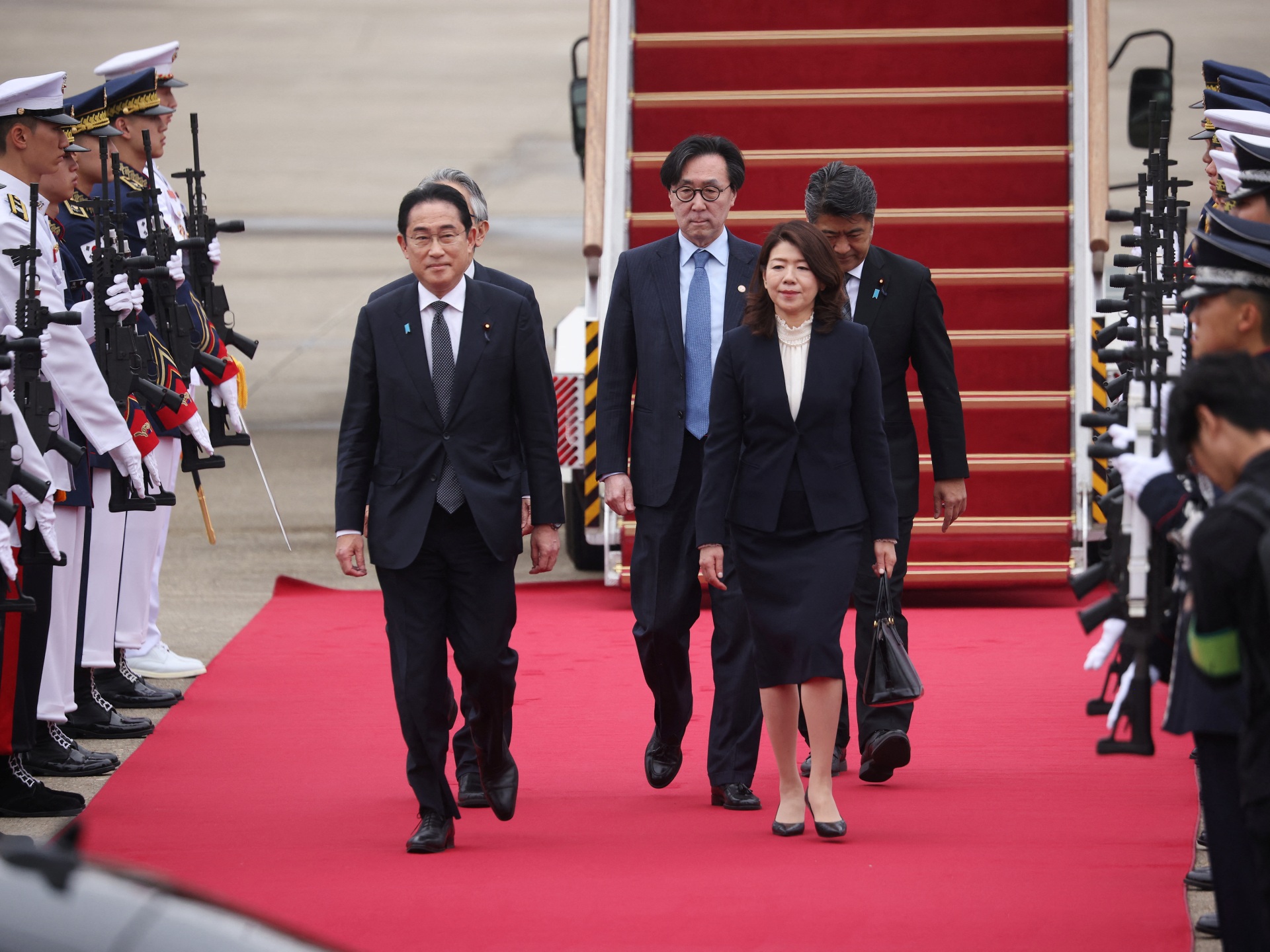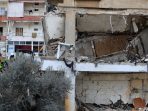Prime Minister Fumio Kishida’s visit marks the first by a Japanese leader to Seoul in 12 years.
Japanese Prime Minister Fumio Kishida has arrived in the South Korean capital, Seoul, to meet President Yoon Suk-yeol, as the two leaders seek to mend ties amid nuclear threats from North Korea.
Kishida’s bilateral visit on Sunday is the first by a Japanese leader to Seoul in 12 years.
It returns the trip Yoon made to Tokyo in March, where they sought to close a chapter on the historical disputes that have dominated Japan-South Korea relations for years.
“I hope to have an open-hearted exchange of views with President Yoon based on our relationship of trust,” Kishida told reporters before his departure to Seoul.
“Since March, there have been various levels of communication in areas including finance and defence, and I plan to further develop this ongoing trend.”
South Korean and Japanese officials said Yoon and Kishida will discuss North Korea’s nuclear programme, South Korean-Japanese economic security and overall relations, and other unspecified international issues.
South Korean officials are also hopeful that Kishida will make some kind of gesture in return for concessions that Yoon’s government made in a long-running feud over forced labour during the Japanese colonisation of the Korean Peninsula from 1910 to 1945.
The dispute escalated in 2018 when South Korean courts ordered two Japanese companies to compensate some of their ageing former Korean employees for forced labour, prompting the two countries to impose tit-for-tat economic retaliatory measures.
In an effort to mend ties, Yoon has proposed that South Korean businesses – not Japanese companies – compensate the victims of wartime labour.
The move has triggered a strong backlash from some of the victims as well as criticism that Yoon has given more than he has received in his efforts to mend relations with Japan, but few observers expect any further formal apology from Tokyo for historical wrongs.
Yoon himself has signalled he does not believe that is necessary.
After his March summit with Yoon, Kishida had said he upholds the positions of previous Japanese governments, including one carried in the landmark 1998 joint declaration by Tokyo and Seoul on improving ties, but did not make a new apology. In the 1998 declaration, then-Japanese Prime Minister Keizo Obuchi said “I feel acute remorse and offer an apology from my heart” over the colonial rule.
The focus of the new summit will likely revolve around security cooperation in the face of North Korea’s nuclear threats, said Shin-wha Lee, a professor of international relations at Seoul-based Korea University.
“Within the framework of the ‘Washington Declaration’, which outlines plans to strengthen extended deterrence, Korea will explore ways to enhance the collaborative efforts with Japan,” she added.
She was referring to a declaration issued by Yoon and United States President Joe Biden, during the South Korean leader’s state visit to Washington, DC last month.
The document proposes to launch a Nuclear Consultative Group to give South Korea more insight into, and a voice in US contingency planning to deter and respond to any nuclear incident in the region.
“We have a lot of opportunities to cooperate when it comes to addressing the threat of North Korea” and securing a free and open Indo-Pacific, a Japanese foreign ministry official said.
Analysts in the US meanwhile say Washington hopes Kishida will offer Yoon more political support over the concessions.
“White House officials have expressed some frustration with the tepid response from Tokyo on the forced labor compensation deal and hope that Kishida will use an upcoming visit to South Korea in early May to do more,” Victor Cha, senior vice president for Asia and Korea Chair at the Center for Strategic and International Studies, wrote in an analysis published last week.
Yoon, Biden and Kishida are expected to hold a trilateral meeting later this month on the sidelines of the Group of Seven meetings in Hiroshima to discuss North Korea, China’s assertiveness and Russia’s war on Ukraine.
Yoon was invited as one of eight outreach nations.
Sumber: www.aljazeera.com
 Skip to content
Skip to content



